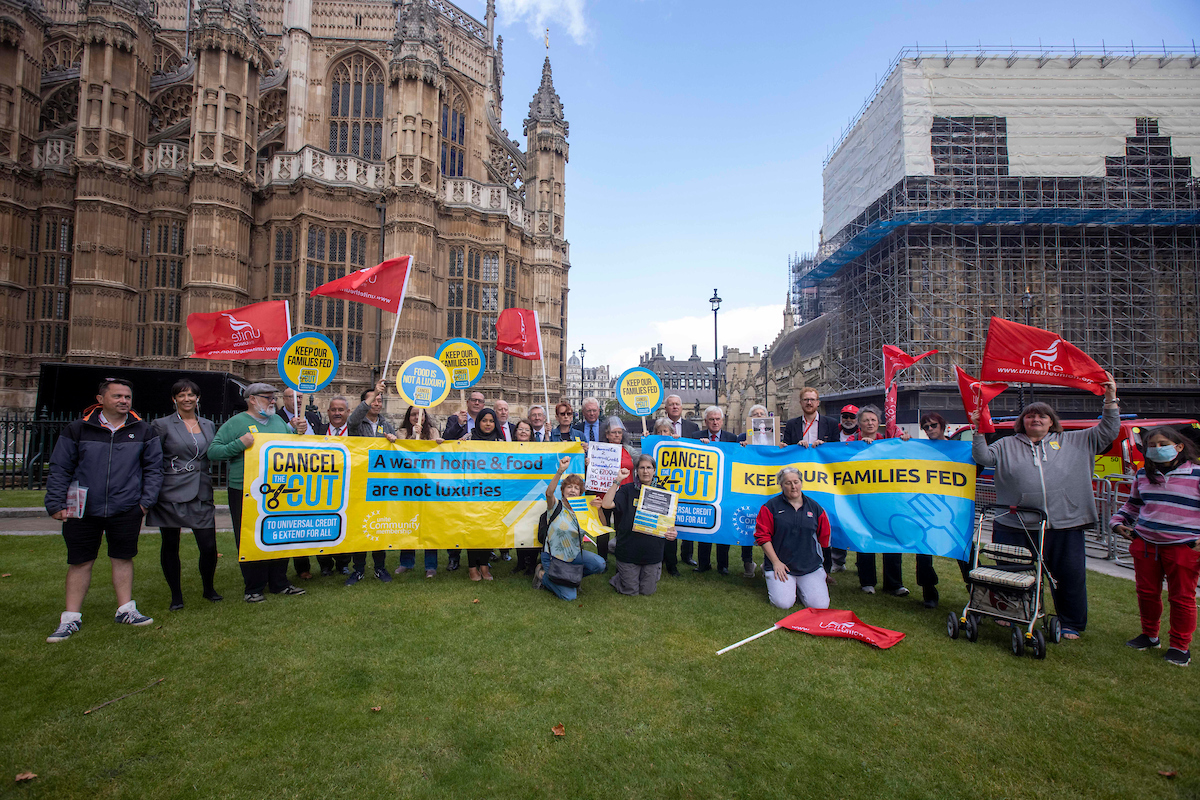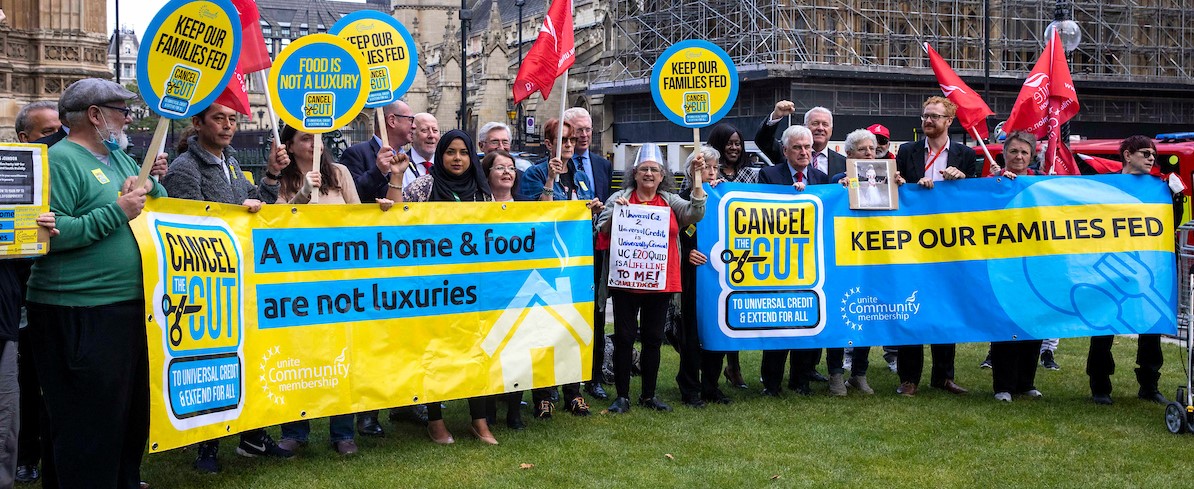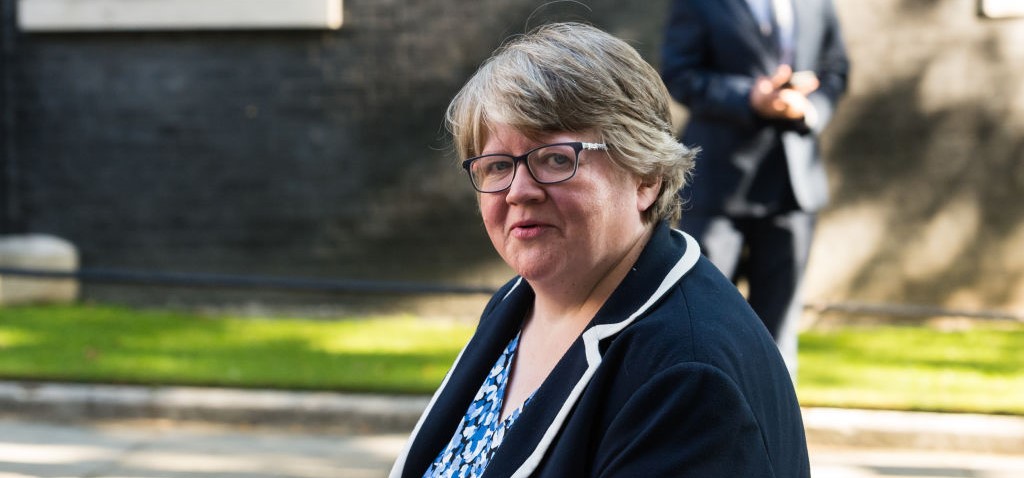‘Universal Credit has broken me’
A disabled Unite health care worker, who is a survivor of marital rape and psychological coercion, has spoken out about the inhuman way domestic abuse victims and other vulnerable people are treated under Universal Credit.
Speaking exclusively to UniteLive, Emma*, a long serving health care professional and mum, is telling her shocking story as a part of the union’s campaign to halt the role out of the all-in-one benefit. After divorcing her abuser, Emma was forced to switch from working tax-credits to Universal Credit, an event which left her with mounting debt and at crisis point – even though officials were informed of her situation.
Emma, who has suffered with a serious autoimmune disease since childhood and is limited under the instructions of Occupational Health doctors to working 24 hours a week, said, “Over many years, I was repeatedly raped, controlled and psychologically abused. I continued to work throughout all of this. I could be sexually assaulted, have three hours sleep and get up and go to work as if nothing had happened.
“Eventually, I did have the courage to tell someone and began talking about things that were happening at home. I took two years from this point to have the courage to divorce him. I did not think there would be any financial hardship to the decision to divorce because my husband refused to work. I had always paid all the bills so there would be no change, in fact under the tax credit system I would have been financially better off.”
To Emma’s shock, moving onto Universal Credit actually left her £350 a month worse off, as the disabled worker allowance she used to receive under tax credits was stopped. This is because the allowance can only be accessed through a work capability assessment, which grants benefits to people unable to work, rather than for disabled people who can work. The Citizens Advice Bureau has stated that this  has resulted in a Catch 22 where “a worker must be assessed as not fit for work to receive targeted in-work support”.
Making things worse for Emma was the fact that her wages are paid on the last Wednesday of every month rather than on the same date. This resulted in her claim being cancelled and her payments being stopped for three months. She was also ineligible to claim her entitlement back for the month in which the claim was ended. This a widely experienced problem for Universal Credit claimants whose regular wages are paid on different days each month and stems from an ill-considered policy stipulation that the benefit amount is calculated to a strictly defined time period.
Emma said, “When the financial hardship hit, my demons finally caught up with me and I had a complete breakdown. I have since been diagnosed with PTSD, anxiety and depression. I told a work coach at the job centre that I had left an abusive marriage. I was offered no support or any kind of special circumstances policy. Nothing.
“I have always paid my bills, taxes, pension and cannot believe as a health care professional with 22 years service I now find myself in this position. I have never in my life been so much as a penny over my overdraft – now I am mortgaged up to the hilt, am living off a credit card and have taken out two personal loans.
“Over everything, it is Universal Credit that has broken me. I have been treated like some kind of benefit scrounger. Had I known that I would lose my tax credits and be transferred to Universal Credit before I separated from my ex-husband, I most definitely would have remained in the marriage and that is a worrying thought. Universal Credit, I believe, traps people in unhealthy relationships and causes more difficulties to individuals who are already in a vulnerable and distressing situation.”
A limited amount of help is available for Universal Credit claimants who have suffered domestic abuse, but only if they provide “written evidence” within one month of the matter being discussed with a work coach.
“It is an absolute joke and protects nobody,” said Emma.
“As someone who has been in this situation, most people will never report it and there are many reasons for this: Fear of consequences, children involved, shame and self-blame are but to name a few and then the victim is expected to prove it to a work coach?”
Head of Unite Community Liane Groves said Emma’s experiences under Universal Credit “are all too common”.
Groves said, “There is no humanity in the system and Universal Credit is so rigid that people’s real life circumstances are not factored in when decisions are made. What is clear is the Conservative government have known all along that Universal Credit causes hardship and misery yet they plough on rolling it out regardless.”
Unite is calling for Universal Credit to be replaced with a social security system that treats claimants with dignity and respect. Unite members who are struggling with Universal Credit should contact their union rep for support. Alternatively they can contact Turn2us – a national charity that helps people gain access to welfare benefits and support services.
If you would like to speak to Unite about your experience of Universal Credit please contact Liane.groves@unitetheunion.org.
The 24 hour National Domestic Violence Helpline, run in partnership between Women’s Aid and Refuge is for women experiencing domestic violence, their family, friends and others calling on their behalf and can be reached on 0808 2000 247.
*Name changed to protect identity
 Like
Like Follow
Follow


